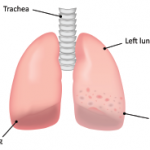 By the time Kelly Conway was diagnosed with rheumatoid arthritis (RA) in 2007, she had already been living with symptoms of the disease for 23 years. Her first symptom appeared when she was 14—knee pain that was incorrectly diagnosed as tendonitis. Over the years, she has experienced fevers and sore joints. She was diagnosed with fibromyalgia in 1993, Graves’ disease in 1999 and Sjögren’s syndrome in 2002.
By the time Kelly Conway was diagnosed with rheumatoid arthritis (RA) in 2007, she had already been living with symptoms of the disease for 23 years. Her first symptom appeared when she was 14—knee pain that was incorrectly diagnosed as tendonitis. Over the years, she has experienced fevers and sore joints. She was diagnosed with fibromyalgia in 1993, Graves’ disease in 1999 and Sjögren’s syndrome in 2002.
Now at age 48, Ms. Conway feels fortunate to have a rheumatologist who listens to her. “I was used to specialists reading my blood work and not looking at or listening to me,” she says. “[My rheumatologist] gives me reality checks when needed and helps me improve my quality of life when possible.”
Managing Multiple Conditions
Finding a team of doctors who communicate with each other was also important, so things aren’t overlooked and Ms. Conway’s care can be coordinated.
When she experiences physical limitations, Ms. Conway meets with an occupational or physical therapist who can help modify daily tasks. They have been able to help her perform simple tasks, such as opening containers, and huge undertakings, such as taking a long-distance trip.
Ms. Conway tracks her symptoms via an app and/or journal. “Having photos of swollen joints that I take between visits helps paint a clear picture for my rheumatologist,” she says.
Despite having multiple diseases, Ms. Conway has found things she can do well. “I began to draw and paint despite my sore hands,” she says.
She once enjoyed extensive travel, home improvement projects and working out, but she has not been able to maintain that active lifestyle. As a result, it’s become important for her to be clear with friends and family about the support she needs and how she’s feeling. This approach has helped relieve stress in these relationships. She says, “People went from loving me, to pitying me, to not believing me because I don’t look sick. Everyone has advice on what you need to do to cure yourself. I had to learn what works for me.”
Her career as a speech-language pathologist has helped Ms. Conway maintain balance in her life. For rheumatology patients who can’t work, she recommends participating in a group, project or club to find fulfillment.
Finding Support Online
In addition to her physical symptoms, Ms. Conway is careful to also focus on her mental health. “Getting diagnosis after diagnosis was depressing,” she says. “My Wonder Woman cape was fairly tarnished by the time I entered therapy with a psychologist. I had thought I was strong enough to handle everything, but when my body wouldn’t do what I wanted it to do, I felt like a stranger in it.”


